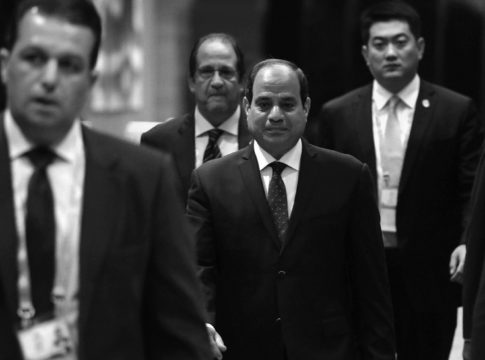Besides some tough measures taken to stabilize an economy impacted by years of political turmoil, Egypt’s recent string of reforms have also been specifically designed to revive local and foreign investment.
Two years since the start of the reform program agreed with the International Monetary Fund, businessmen and analysts argue that these actions, such as devaluing the Egyptian pound and slashing energy subsidies, are now paying dividends. Indeed, with economic indicators improving and international business looking with increased interest towards the Arab world’s most populous nation, investments are finally starting to take off.
While the fiscal reforms and a weaker Egyptian pound has made it easier to do business, the drive to open up the private sector to foreign investment has included the passing of other legislative reforms, ranging from a new investment law to the removal of red tape. As a result, the Egyptian government is today reporting a spike in new companies coming to its shores, as well as an expansion of existing ones, and a rise in foreign investment – up by 24 percent in the first six months of 2018 compared to the first half of 2017.
The new investment law, ratified in June last year, has provided a particularly important landmark in Egypt’s bid to improve the business climate. With an aim to modernize and reduce barriers to how international companies invest and operate in Egypt, the reform looks to expand economic growth, domestic production, exports and foreign investment, and is designed to boost employment opportunities and increase Egypt’s competitive edge across the region. The law, it is hoped, will also help improve equality of opportunity, empower youth, protect the environment and public health, and enhance good governance and transparency.
In order to specifically attract more global capital to Egypt, a number of new safeguards and incentives were written into the law, including offers of preferential treatment, certain guarantees of residency, and tax exemptions for foreign investors.
The impact of the investment law, along with other legislative reforms, means Egypt is now “open for business,” says the country’s Minister of Investment and International Cooperation, Sahar Nasr. “We’re repositioning Egypt as a global investment destination, so we’ve moved forwards with comprehensive improvements in the business environment.”
Amid all this positive progress, the government importantly recognizes that there remains even more room for improvement when it comes to strengthening the investment climate, including a reduction in state-ownership and a rise in private sector participation – something the minster describes as “a work in progress”.
While it is true that the role of the state has loomed large in recent years, the government has affirmed its commitment to boosting competition – a task overseen by the Egyptian Competition Authority (ECA).
In October 2018, a new draft law was submitted to Parliament to ensure that the ECA reports directly to the prime minister and is independent from any ministry, in order to avoid conflict of interest, and to provide the authority with independence in terms of hiring, strengthening competition, optimizing public spending, and reducing corruption.
“As the competition authority, we are the defenders of the free market,” says Dr. Amir Ibrahim of the ECA. “If anyone believes in the value of the free market economy, it’s us. That’s why we exist, and that’s the goal we are trying to achieve.”
Recent years have seen an effective and determined enforcement policy from the ECA, which today it continues to pursue as its strategic vision, providing Egypt with its key instrument for ensuring free competition in the market and prohibiting anti-competitive practices.
“The competition policy works alongside the reforms – reforms that were desperately needed,” says Mr. Ibrahim. “But as well as that, we want to make sure that economic reforms will not be taken as an excuse for anti-competitive prices which unnecessarily raise prices on consumers and therefore result in unfair distribution of wealth.”
The aim of the reforms, says Mr. Ibrahim, was to remove the state influence from the market, so the ECA is working to ensure that this is not substituted by the collective influence of private undertaking.
“If we are demanding the state to not impose prices, or to liberalize the economy, we cannot accept that the private sector will assume this role on their own,” he says. “So, we think the competition policies have a big role to play in the reform policies specifically.
“Essentially, we are protecting the reforms. Meanwhile, the government endeavors to make these reforms work for the interest of the consumer and for the interest of foreign investment, and also local investment as well.”


